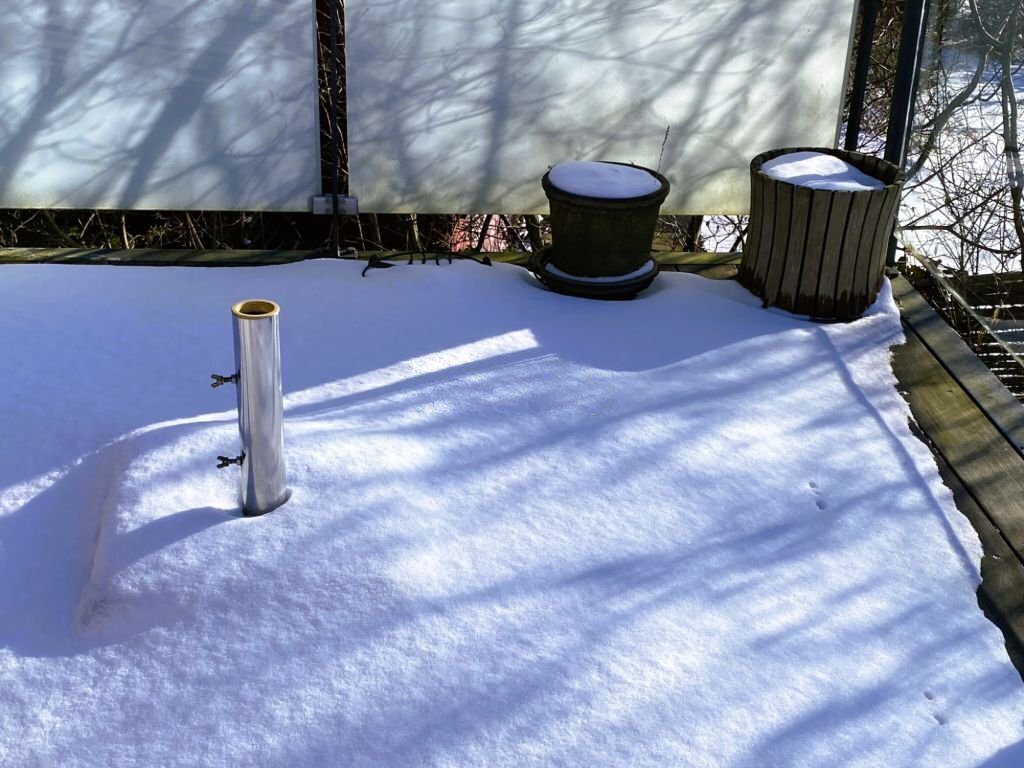Table of Contents
Winter is the Perfect Time To Waterproof Your Basement
When winter arrives and the weather gets colder, homeowners frequently focus on inside projects and maintenance chores. The basement is an important part that needs extra care in the winter. The demand for basement waterproofing is at its greatest during this period. The structural integrity and safety of your basement can be seriously compromised by the heavy rains, snowmelt, and freezing temperatures that come with winter. We’ll discuss why winter is the perfect season to waterproof your basement in this blog post, as well as how it can ultimately help to safeguard your house. But before that, we will explore the best basement waterproofing options. Choosing the right contractor for basement waterproofing to avoid roofing mistakes and provide the best waterproofing services.
Expert Roofing & Basement Waterproofing is one of the best expert roofing and waterproofing companies in Michigan. Give us a call or send us an email to get professional waterproofing services.
Best Options For Basement Waterproofing
Exterior Waterproofing
Exterior waterproofing is the most effective method of keeping water out of your basement. The external waterproofing process entails installing a waterproof membrane to the outer walls and excavating the soil around the home’s foundation. A thick rubberized substance is used to isolate the dirt from the foundation walls.
In addition, drainage panels are used to cover the membrane, permitting any water that penetrates to drain away from your foundation wall. This is one of the most time-consuming and costly approaches to waterproofing, but it is a long-term problem solver that can prevent further water damage.
Interior Waterproofing
Internal waterproofing entails applying a waterproof coating to your basement’s internal walls. The coating is applied to the inside walls, creating a stronger barrier between the walls and any water that may penetrate the basement walls or flooring. It is the greatest method when combined with outside waterproofing to provide additional protection. Because it does not address the source of the water, outside waterproofing is less successful than internal waterproofing.
Waterproofing paint
Waterproofing paint also serves as one of the greatest ways to keep water, leaks, and damage out of your basement. Waterproofing paint can be placed on the concrete walls of your foundation. A leaky foundation can cause significant damage, so waterproofing discomfort is a smart way to prevent it. However, there are two forms of waterproofing paint: acrylic and epoxy. Acrylic paints are more resilient than epoxy pens, and epoxy paint can be put to the damn surfaces. Both are successful ways to keep your basement dry and damage-free; however, you must reapply them periodically throughout the year to preserve their efficiency.
French Drain
We can also use a French drain as a reliable waterproofing method. A French drain is a bench built around the foundation of your home. The trench is gravel-filled and features a perforated pipe to allow water to drain. The French drain allows water to be transported away from the foundation and dumped in the chosen location. It is a wonderful method for keeping water out of your basement. It must be maintained regularly to ensure that they are clear of dirt and do not become blocked.
Sump Pump
A sump pump is a device put in the basement that pumps water from the basement away from the house. Sump pumps are a good way to keep water out of your basement, but we must properly service them regularly to ensure that they always perform effectively. If your primary pump fails and overflows, you should have a backup system installed to prevent damage to your basement. You should also have a backup mechanism for running some pumps in case one fails.
Waterproofing for crawl spaces
A crucial procedure that can prevent water damage to your basement and enhance the indoor air quality is crawl space waterproofing. Small, unfinished rooms that are often found beneath a home’s main floor, and crawl spaces are challenging to reach and can develop several issues, including moisture buildup and mold growth. Waterproofing can shield the space from flooding and keep moisture from accumulating.
Why Winters Is The Best Time for Basement Waterproofing
Determine Existing Leaks:
During the winter, your basement’s foundation may be under additional pressure from heavy rain, melting snow, and frozen ground. The increased wetness will reveal any existing leaks or fissures in your basement’s walls or floorboards. You can stop more damage from occurring and potential floods in the future by taking instant action on these issues.
Faster Drying Time:
Contrary to popular assumption, winter might be the best time for basement waterproofing because drying times are quicker. The materials used in the waterproofing procedure, including sealants and coatings, will dry more quickly during the colder months because the air is often drier during that time. Since your routine won’t be much disrupted, you may benefit from a fully waterproof basement in a shorter amount of time.
Problems Caused by Spring Thaw Prevention:
Winter waterproofing assists protect your basement from serious problems brought on by the coming of spring. Excessive moisture may enter your basement through cracks, leaks, and porous surfaces as the ground thaws and the snow melts. Before the winter is over, you can stop this moisture penetration and save your home from dampness, mold development, and structural damage by waterproofing your basement.
Energy Efficiency:
Waterproofing your basement throughout the winter might improve your home’s energy efficiency. Your home will stay warmer and your heating system will work less hard if you decrease the amount of cold air intrusion by caulking any cracks or openings. This results in energy savings and reduced utility costs during the winter. Furthermore, by keeping moisture from entering your basement, you reduce the potential of dampness and humidity, which can enhance mold growth and have an impact on the quality of the air within your home.
Preventing Mold and Mildew Growth:
Basements are renowned for being damp and humid, which makes them the perfect space for mold and mildew to grow. Because of the more frequent temperature swings and wetness, winter may exacerbate these concerns. Waterproofing your basement in the winter helps to eliminate moisture sources, reduce humidity levels, and prevent mold and mildew growth. As a result, the health of your family is protected, and the air quality in your home improves.
Easier Scheduling and Availability:
Winter is often a slower season for contractors and waterproofing professionals. Waterproofing projects are sometimes postponed until the weather improves in the spring or summer. As a result, scheduling appointments and obtaining expert assistance is typically easier in the winter. You may even benefit from off-season prices and have more freedom to schedule the service at a time that is convenient for you.
Cost-Effective Solution
Contrary to what many people think, waterproofing your basement throughout the winter might be a sensible choice. The off-peak period is a good time to start this home repair project because several waterproofing businesses offer discounts and promotions. You may save money and protect your house from potential water-related issues by taking advantage of these seasonal deals and offers.
Choose Expert Roofing & Basement Waterproofing
Expert Roofing & Basement Waterproofing is the best option for waterproofing services for basements. They offer reliable and effective waterproofing solutions because of their years of experience, knowledgeable team of specialists, and commitment to client satisfaction. Expert Roofing & Basement Waterproofing keeps your basement dry and secure all year long by addressing the source of water penetration and implementing effective waterproofing techniques.
Our basement waterproofing services include
- Complete-Release™ Systems
- Exterior Drainage Systems
- Exterior Excavation
- Exterior Waterproofing
- Interior Drainage Systems
- Interior Wall Stabilization
- Basement Ventilation Solutions
Conclusion
It is best to prioritize basement waterproofing over the winter. By taking proactive steps to safeguard your basement over the winter, you may avoid water damage, take care of any problems already present, be ready for the spring thaw, increase energy efficiency, and improve your living space. Waiting until water infiltration becomes a major issue is not advisable. Consult with knowledgeable professionals who specialize in basement waterproofing to evaluate your basement’s requirements and develop a unique plan to protect your property from the winter weather. You may have peace of mind knowing that your basement is safeguarded and your home is secure with adequate waterproofing.
- Yes, there are a lot of roofing firms that run seasonal sales and discounts. You can save money with these reductions on roof maintenance, installation, or replacement.
- Search for the best ventilation services and you will find Expert Roofing and Basement Waterproofing firms at the top of your search list.
- Conduct regular inspections, clear gutters and drains, trim overhanging branches, secure loose shingles or tiles, and reinforce vulnerable areas like eaves, soffits, and gables to have your roof ready for inclement weather.

